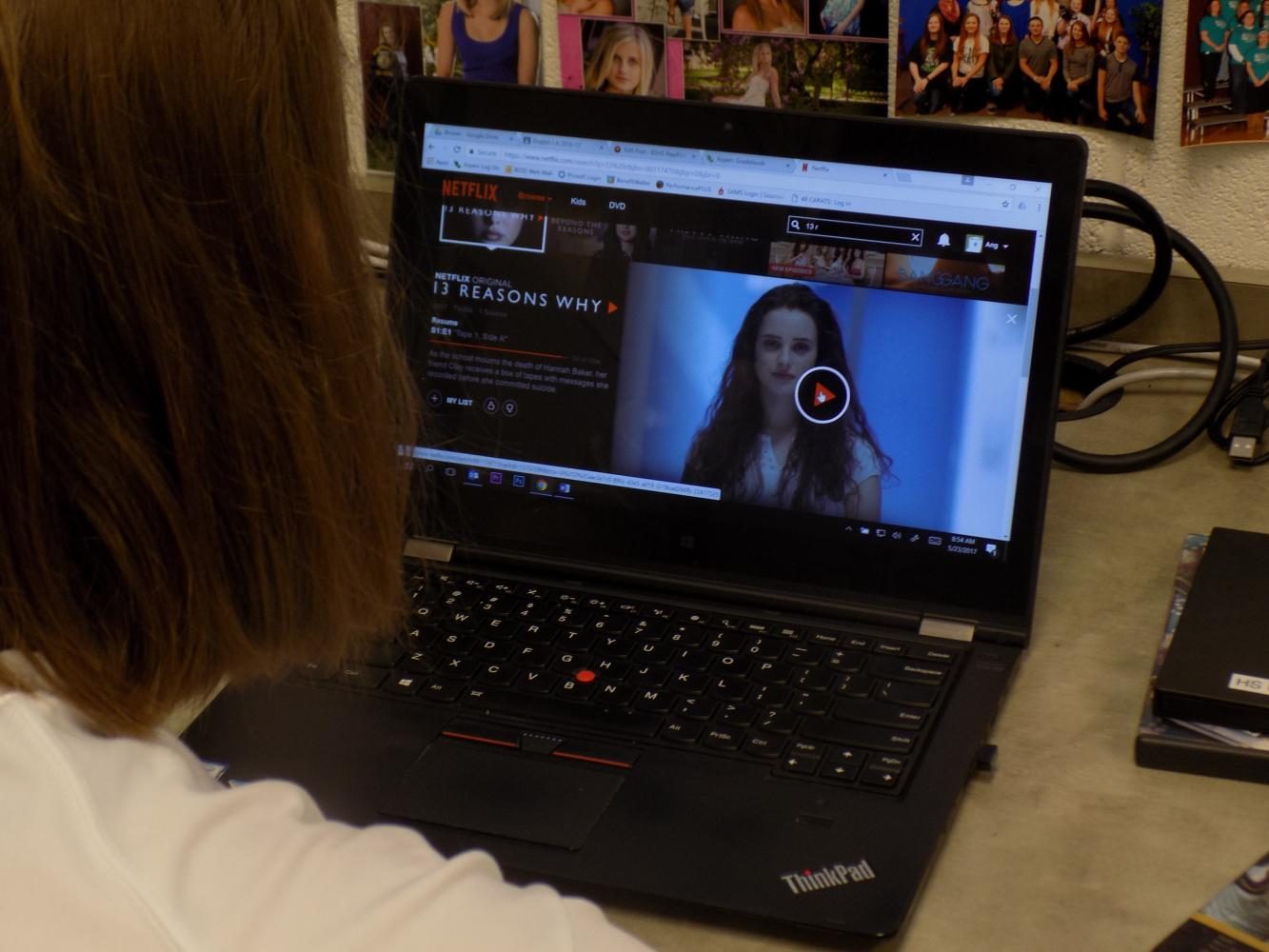Netflix series causes controversey
May 23, 2017
The show “13 Reason Why” has accomplished its goal: it has people talking. Whether or not people are talking about the impact and effects of suicide or the show’s subpar representation of it is up in the air. Either way, since the show will be continuing on with a second season, it’s important to consider its “side effects.”
Based on the novel by Jay Asher, this series, narrated by a deceased main character, uses revenge in the form of video tapes to show how actions have consequences. Since the plot follows the aftermath of the suicide of a teenager, the show has some very necessary elements, as well as some that cause problems. The biggest issue is that the show seems to ‘promote’ suicide. “It appears to promote suicidal behavior and it, in certain ways, glorifies that kind of behavior, which is not a message that is healthy for adolescents,” school counselor Jocelyn Kraus said.
Freshmen Hailey Gilligan and Gemma Laverty, avid “13 Reasons Why” watchers, liked the ideas brought up in the show, but questioned the way they were portrayed. “It does shed light on the topic of suicide, but it doesn’t do it in the proper manner, because there are people that are going and making fun of it, and not keeping it as serious as it should be,” Gilligan said. Laverty agrees that “it [the show] shows how serious suicide can be, and it shows that this happens, but it doesn’t just happen to one person.”
Principal Bill August on the other hand, gives the show the benefit of the doubt. “It’s intended to be a piece that doesn’t glorify suicide, but rather is intended to get the message out about how to stop it.”
Either way, the administration at Big Spring has stepped in and sent home a letter outlining the show and its possible consequences. The letter provides parents with background on the show, and ways they can approach the topic of suicide with their children. Also included in the letter were multiple resources for suicide prevention. “The school’s role is to get the message out, not only to the students, but to the parents and the community,” August said.
Sophomore Allison Spencer agreed with the district’s decision. “Everyone thought it was stupid, but I liked the note because that [talking about suicide] was the purpose of the show.”
“We’d rather have students come to some trusted adult about how their feeling, so it can be dealt with appropriately,” said Kraus.
For more information about the benefits and drawbacks of the show, check out the video feature story embedded here.
